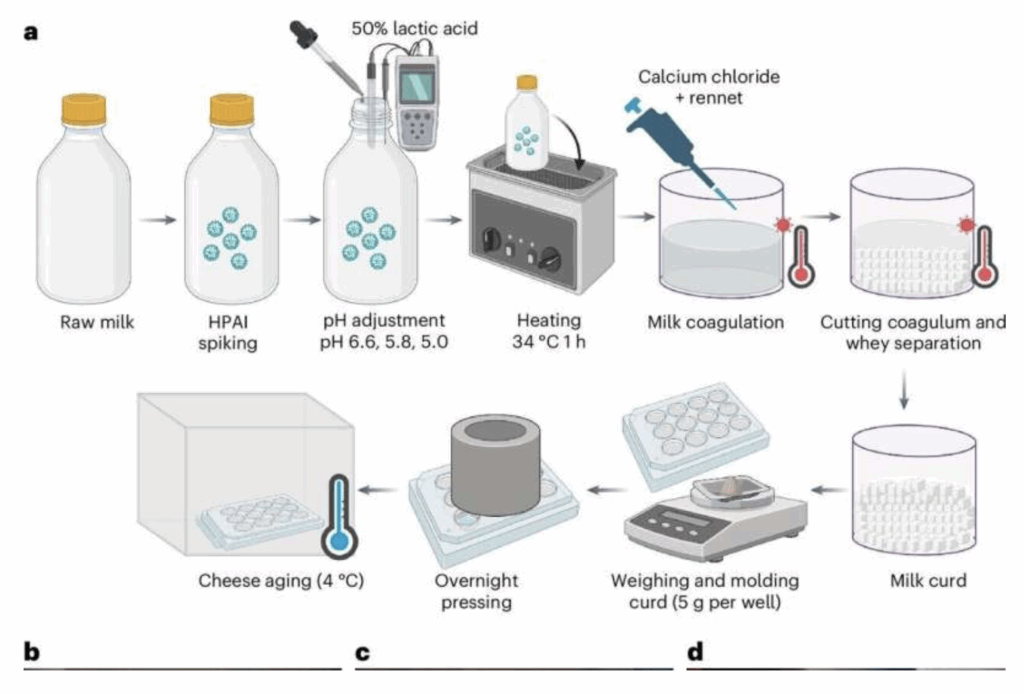
Raw milk cheese products contained infectious avian influenza virus when made with contaminated raw milk, creating potential health risks for consumers, according to a new study. The study is published in Nature Medicine.
“In this study, we were specifically looking at the stability or persistence of highly pathogenic avian influenza H5N1 in raw milk cheese products,” said senior author Diego Diel, professor of virology in the Department of Population Medicine and Diagnostic Sciences and director of the Virology Laboratory at the Animal Health Diagnostic Center (AHDC), all in the College of Veterinary Medicine (CVM).
“This research was initiated due to previous work demonstrating high levels of virus shedding in milk from infected cows and the fact that we have previously shown that the virus survives in refrigerated raw milk for extended periods of time,” he said.
While the Food and Drug Administration requires that raw milk cheese must be aged a minimum of 60 days at or above 35°F, the study’s authors detected infectious virus after 120 days of aging at a temperature of 39°F. The required 60-day aging process, which can reduce moisture, is intended to eliminate pathogenic bacterial contaminants potentially present in raw milk cheeses.